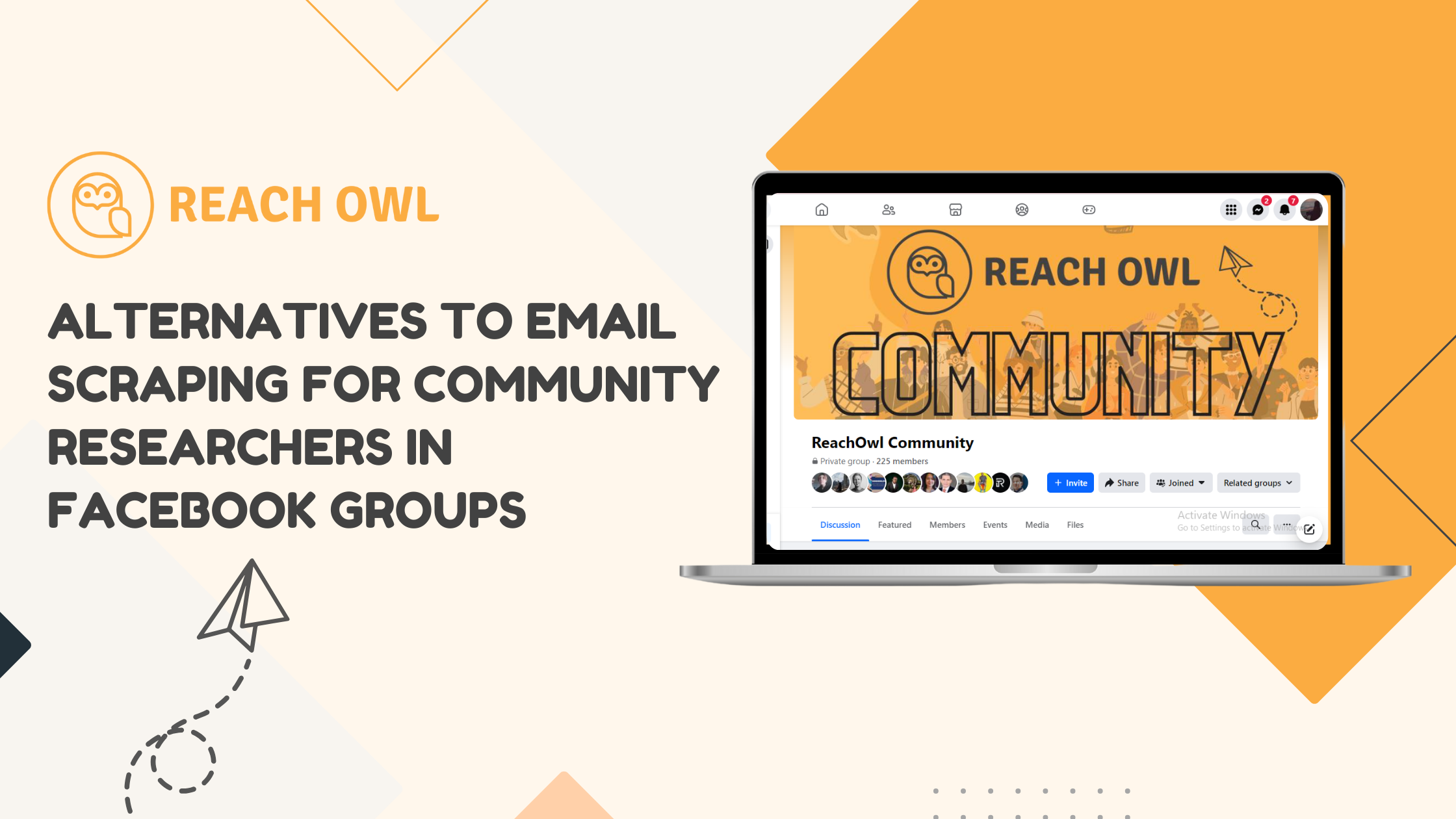Facebook groups are active spaces where people with similar interests share thoughts and experiences. Researchers often use email scraping to collect user data, but due to privacy concerns and strict regulations, it’s essential to find alternative methods that respect privacy and follow ethical research practices.
In this article post, we’ll explore alternatives to email scraping for community researchers in Facebook groups. We’ll focus on effective and ethical methods to collect insights.
1. Engage actively in conversations:
a. Joining the group:
Get involved by actively joining and participating in discussions. This helps build trust and gives you a deeper understanding of the community.
b. Asking permission:
Request to contact specific members privately through Facebook messages or comments. Clearly explain your research goals and respect their right to decline.
c. Conducting online focus groups:
Start specific discussions within the group, encouraging members to share their thoughts on particular topics.
 2. Using Facebook’s Tools:
2. Using Facebook’s Tools:
a. Utilizing the Facebook Graph API:
This official API allows access to public group data like posts, comments, and member demographics. It requires some technical knowledge, but it provides valuable insights without scraping private information.
b. Observing conversations in public groups:
Stay involved in group discussions, analyze trends, common themes, and how users interact. This gives you valuable qualitative data without reaching out to members directly.
3. Collaborating with Group Admins:
a. Partnering with admins:
Contact group admins, share your research goals, and discuss potential collaboration. They might give you access to group data or help with surveys and questionnaires for members.
b. Participating in existing initiatives:
Some groups run surveys or polls. Volunteer your expertise to analyze their data and offer valuable insights to the community.
 4. Direct Messaging and Relationship Building:
4. Direct Messaging and Relationship Building:
a. Focus on Individual Relationships:
Instead of mass scraping, concentrate on forming individual relationships within the community
b. Utilize Direct Messaging:
Use direct messaging to interact with members, learn about their needs, and ask for permission to access their contact information.
5. Community Surveys and Feedback Forms:
a. Community Feedback:
Conduct surveys or seek feedback from the community using platforms like Typeformor SurveyMonkey. Provide an option for members who want to share feedback anonymously.
b. Opt-In Information Sharing:
Members voluntarily participate, providing contact information if they wish to be involved in further discussions. Take the feedback you’ve collected and use it to make enhancements within the community.
6. Educational Content and Workshops:
a. Knowledge Sharing:
Provide educational content within the community, allowing members to register with their email addresses. This not only collects contact information but also establishes you as an authority within the community.
b. Post-Workshop Engagement:
Collect contact information as members register for workshops. Use the gathered information responsibly for follow-ups or related content.
Successful community research within Facebook groups doesn’t require compromising privacy or violating ethical standards. By embracing alternative strategies that categories consent, transparency, and community engagement, researches can collect valuable information while maintaining the integrity of the community.
By adopting these alternatives, community researchers can access the wealth of insights within Facebook groups while maintaining ethical principles and building trust with online communities.
So, leave the scraper behind and join the group—a world of authentic engagement and valuable data is waiting for you!



Wow Thanks for this content i find it hard to get a hold of beneficial particulars out there when it comes to this topic thank for the thread site
Wow Thanks for this post i find it hard to find great important information out there when it comes to this topic thank for the write-up website
Wow Thanks for this thread i find it hard to find really good info out there when it comes to this topic appreciate for the thread website
Wow Thanks for this information i find it hard to realize good important information out there when it comes to this subject material appreciate for the blog post site
nice blog mate.. amazing content.. this one i search for. thank you
Wow Thanks for this publish i find it hard to come across excellent information out there when it comes to this content thank for the write-up site